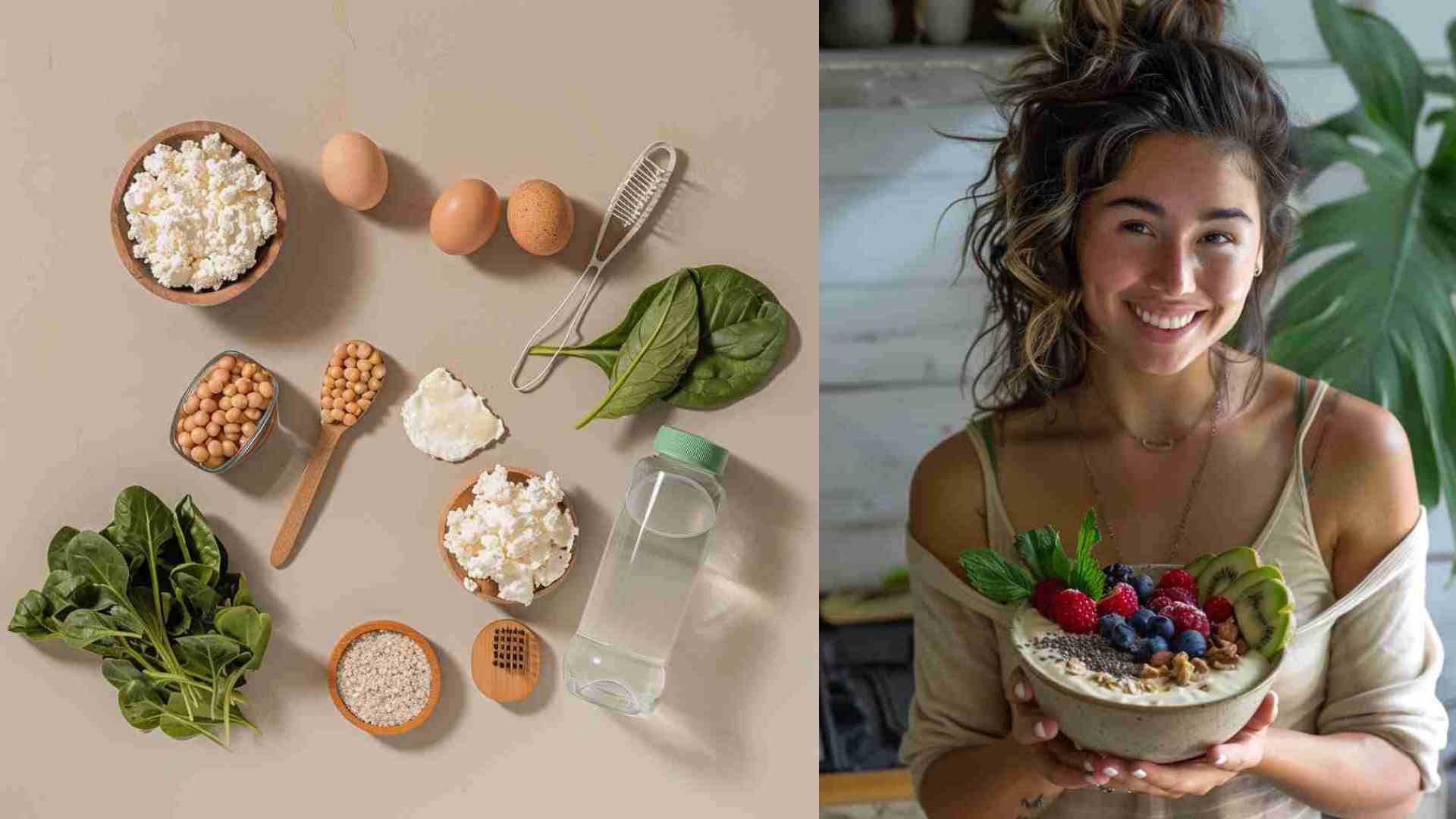Hair loss can be a distressing experience for many women, impacting self-esteem and confidence. While various treatments are available, many are invasive or come with unwanted side effects. Fortunately, incorporating protein-rich foods into your diet can be a natural and effective remedy for hair loss. In this article, we’ll explore the benefits of protein for hair health, highlight five protein-rich foods, and provide detailed treatment suggestions, including how to use them, their benefits, potential side effects, and how they contribute to reducing hair loss.
Understanding the Role of Protein in Hair Health
Hair is primarily composed of a protein called keratin. This structural protein provides strength and elasticity to hair strands. Therefore, a deficiency in protein can lead to weaker hair, increased brittleness, and eventual hair loss. Protein-rich foods help supply the necessary building blocks for hair growth and maintenance.
Benefits of Protein for Hair
- Strengthens Hair: Protein helps reinforce hair structure, reducing breakage.
- Promotes Growth: Adequate protein intake can encourage the growth of new hair strands.
- Enhances Texture: Protein can improve hair texture, making it appear shinier and healthier.
- Balances Hormones: Certain proteins can help regulate hormones related to hair loss, such as DHT (dihydrotestosterone).
- Supports Scalp Health: A protein-rich diet can improve scalp conditions that may contribute to hair loss.
Five Protein-Rich Foods for Treating Hair Loss
1. Eggs
How to Use:
Eggs are an excellent source of high-quality protein and biotin, both essential for hair growth. You can consume them boiled, scrambled, or in an omelet. For topical use, you can apply beaten eggs directly to the scalp as a hair mask.
Benefits:
- Nutrient-Rich: Eggs contain vitamins A, D, and E, which support hair health.
- Protein Density: A single large egg contains about 6 grams of protein.
Side Effects:
Generally safe, but some may experience allergic reactions. If you’re allergic to eggs, consider alternatives.
2. Greek Yogurt
How to Use:
Incorporate Greek yogurt into your diet as a snack, in smoothies, or as a base for salad dressings. For topical treatment, apply plain Greek yogurt to your scalp and hair, leaving it on for 30 minutes before rinsing.
Benefits:
- Rich in Protein: One serving contains approximately 15 grams of protein.
- Probiotics: Supports scalp health and may reduce inflammation.
Side Effects:
Lactose intolerance can cause digestive issues; opt for lactose-free versions if necessary.
3. Lentils
How to Use:
Lentils are versatile and can be added to soups, stews, salads, or blended into dips. Aim for at least one cup of cooked lentils per meal.
Benefits:
- High Protein Content: One cup of cooked lentils provides about 18 grams of protein.
- Rich in Iron: Helps improve blood circulation to the scalp, promoting hair growth.
Side Effects:
May cause digestive discomfort if consumed in large quantities; gradually increase intake to avoid bloating.
4. Salmon
How to Use:
Include salmon in your diet by grilling, baking, or adding it to salads. Aim for at least two servings per week.
Benefits:
- Omega-3 Fatty Acids: Essential for scalp health and reducing inflammation.
- Protein Powerhouse: A 3-ounce serving provides around 22 grams of protein.
Side Effects:
May contain mercury; choose wild-caught salmon to minimize exposure to contaminants.
5. Quinoa
How to Use:
Quinoa can be used as a base for salads, added to soups, or enjoyed as a side dish. One cup of cooked quinoa can be easily integrated into various meals.
Benefits:
- Complete Protein Source: Contains all nine essential amino acids, providing about 8 grams of protein per cup.
- Rich in Nutrients: Contains magnesium, iron, and B vitamins, all of which support healthy hair.
Side Effects:
Generally well-tolerated, but excessive consumption can lead to digestive issues due to its fiber content.
Conclusion
Incorporating protein-rich foods into your diet can significantly contribute to healthier hair and may help combat hair loss in women. By focusing on nutrient-dense options like eggs, Greek yogurt, lentils, salmon, and quinoa, you not only support hair health but also promote overall wellness.
While these foods are generally safe to consume, it’s essential to listen to your body and consult with a healthcare professional before making significant dietary changes, especially if you have underlying health conditions or allergies. With a balanced diet and proper hair care, you can work towards revitalizing your hair and restoring your confidence.
Please share this Protein-Rich Foods Natural Treatment for Hair Loss Female with your friends and do a comment below about your feedback.
We will meet you on next article.
Until you can read, Omega-3 Fatty Acids Natural Treatment for Hair Loss Female
